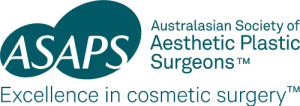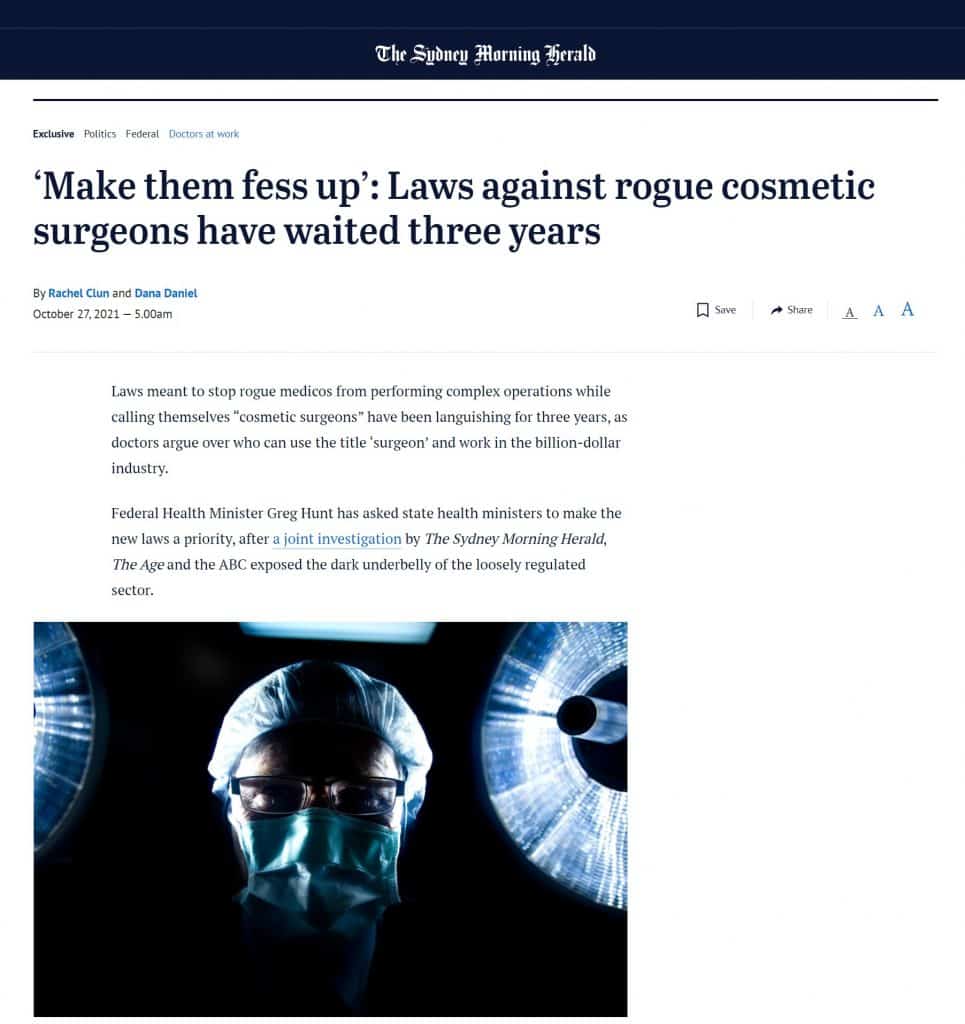Dr Robert Sheen, a specialist plastic surgeon and president of the Australasian Society of Aesthetic Plastic Surgeons, said short of protecting the title of cosmetic surgeon, practitioners should be forced to tell patients what is their exact medical registration. “If the cosmetic surgeon was forced to disclose, for example, that they have general registration with AHPRA, not specialist registration … I think most patients would elect to go elsewhere,” he said. “Just make them fess up about what they really are.”
Specialist surgeons in all other fields have to compete for places in training programs from one of the medical colleges, including the Royal Australian College of Surgeons. Those training programs are ticked off by the Australian Medical Council, and the council requires all registered specialists to periodically update their training and have their accreditation reassessed.
Dr Sheen said many specialists including ophthalmologists and ear nose and throat surgeons undergo training for and perform cosmetic surgery, while the majority of practitioners who call themselves cosmetic surgeons have not been through that process. Surveys conducted by the Australasian Society of Aesthetic Plastic Surgeons show the vast majority of patients believe people who call themselves cosmetic surgeons are expert surgeons and don’t realise that many have not had specialist surgical training, he added.
“I would posit that is highly deceptive,” Dr Sheen said. “We’re not telling these guys to stop operating. We’re saying let’s make them tell the truth. Let’s do things with our patients in a climate of full and open disclosure. So if you have general registration, don’t pretend you’re a specialist.”

